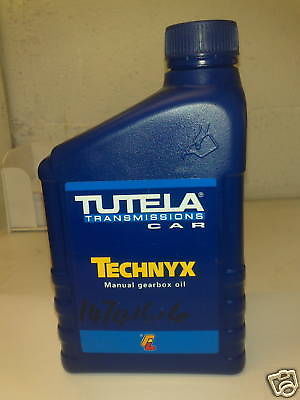Search the Community
Showing results for tags 'oil'.
-
- 11 replies
-
- fiat
- fiattutela
-
(and 5 more)
Tagged with:
-

An Audi TT driver drove his car for over 130,000km without an oil change
chitchatboy posted a blog entry in MyAutoBlog
A driver drove his 3.2-litre Audi TT for more than 130,000 km without any engine oil change. And this is how it looks like after it finally gave up. According to one of the users from the Audi TDI forum, a couple of pictures of the ruined engine were published in a post and the photos has since floated around the net. It is not known why the owner stopped changing the engine oil but it is almost a certain that the engine has to be replaced. For Audi TT owners out there who have the 3.2-litre VR6 engine which outputs around 246bhp, it should pretty comforting to know that your engine can take some real abuse! -
https://sg.finance.yahoo.com/news/asian-stocks-mostly-upbeat-us-retail-sales-084209687--finance.html Since utility prices are pegged to oil, why hasn't PUB lowered the electricity tariffs?
-
Discovered last few week. oil drip on exhaust joint. Changed seals of crank, sump and side cover. Still got little trace of drip. Car left 9mths to go. Will it catch fire when i am driving long distance ie to genting/KL? my friend advice is just to keep a liter of EO in the car and is necessary top up. And also when car is parked overnite, when accelerating got a very fine squeeking sound, but after 5 mins of driving it went off totally. Only when accelerating...wat is that? My main concern is will it catch fire...safety come 1st mah.
-
http://www.bbc.com/news/business-29961566
- 11 replies
-
- 1
-

-
Whenever I washed my car every few weeks, I observed that the 2 front wheel rims always have oil stains whereas the 2 back rims only have normal dirt. Is it normal or something is leaking somewhere?
-
“RISE early, work hard, strike oil.” The late oil baron J. Paul Getty’s formula for success is working rather well for America, which may already have surpassed Russia as the world’s largest producer of oil and gas (see article). By 2020 it should have overtaken Saudi Arabia as the largest pumper of oil, the more valuable fuel. By then the “fracking” revolution—a clever way of extracting oil and gas from shale deposits—should have added 2-4% to American GDP and created twice as many jobs than carmaking provides today. All this is a credit to American ingenuity. Commodities have been a mixed blessing for other countries (see our leader on Argentina). But this oil boom is earned: it owes less to geological luck than enterprise, ready finance and dazzling technology. America’s energy firms have invested in new ways of pumping out hydrocarbons that everyone knew were there but could not extract economically. The new oilfields in Texas and North Dakota resemble high-tech factories. “Directional” drills guided by satellite technology bore miles down, turn, bore miles to the side and hit a target no bigger than a truck wheel. Thousands of gallons of water are then injected to open hairline cracks in the rock, and the oil and gas are sucked out. From the point of view of the rest of the world, the new American petrostate is useful. Fracking provides a source of energy that is not only new but also relatively clean, cheap and without political strings. It should reduce the dependence on dirty fuels, such as coal, and extortionate suppliers, such as Russia. Moreover, fracking is unusually flexible. Setting up an oil rig in the Gulf of Mexico can take years. But America’s frackers can sink wells and start pumping within weeks. So if the oil price spikes, they drill more wells. If it falls, they let old ones run down. In theory, fracking should make future oil shocks less severe, because American producers can respond quickly. Fracking all over the world Some foreign-policy wonks argue that this dramatic change in America’s fortunes argues for a fundamental change in the country’s foreign policy. If America can produce its own oil, they argue, why waste so much blood and treasure policing the Middle East? Yet even if it were politically sensible for America to disengage from the world—which this newspaper does not believe it is—the economic logic is flawed. The price of oil depends on global supply and demand, so Middle Eastern producers will remain vital for the foreseeable future. It is in the superpower’s interest to keep Gulf sea lanes open (and not to invite China to do the job instead). Although America’s foreign policy should not change, its energy policy should. Its ban on the export of crude oil, for instance, dating from the 1970s, was intended to secure supplies for American consumers. But its main effect is to hand a windfall to refiners, who buy oil cheaply and sell petrol at the global price. Barack Obama should lift it so that newly fracked oil can be sold wherever it makes the most cash. And he should approve the Keystone XL pipeline, which would carry oil from Canada’s tar sands to American refineries; an exhaustive official study has deemed the project environmentally sound. America does not ban the export of natural gas, but it makes getting permits insanely slow. Fracking has made gas extraordinarily cheap in America. In Asia it sells for more than triple the price; in Europe, double. Even allowing for the hefty cost of liquefying it and shipping it, there are huge profits to be made from this spread. The main beneficiaries of the complicated export-permit regime are American petrochemical firms, which love cheap gas and lobby for it. Mr Obama should ignore them. Gas exports could generate tankerloads of cash. To the extent that they displace coal, they would be good for the environment. And they could pay foreign-policy dividends, such as offering Europeans an alternative to Russian gas and so reducing Vladimir Putin’s power to bully his neighbours. Allowing exports might cause America’s domestic gas prices to rise a little, but it would also make American frackers pump more of it, cushioning the blow. A world in which the leading petrostate is a liberal democracy has much to recommend it. But perhaps the biggest potential benefit of America’s energy boom is its example. Shale oil and gas deposits are common in many countries. In some they may be inaccessible, either because of geology or because of environmental fears: but in most they go unexploited because governments have not followed America’s example in granting mineral rights to individual landowners, so that the communities most disrupted by fracking are also enriched by it. Become a champion of a global fracking revolution, Mr Obama, and the world could look on America very differently.
- 3 replies
-
- 1
-

-
- oil
- petrostate
-
(and 1 more)
Tagged with:
-
[extract]
- 1 comment
-
- discussions
- local
- (and 12 more)
-
I'm sure you don't need me to tell you that petrol prices in Singapore seem to be constantly going in only one direction of late. So this week's news comes as no surprise. As someone who utilises the car almost everyday, the rising prices can be quite disheartening, even with whatever discounts we can squeeze from whatever cards or offers we make use of. That said, I actually came across an article a while back, comparing prices of petrol in the US and various European countries. And when I compared the prices, and calculated our own after currency conversion, we don't seem to fare that badly actually (P.S. The article is here by the way) The problem is the disparity, between incomes and prices of consumer goods. The difference is simply too great. I mean, close to $80 for a full tank of fuel every week is ridiculous for the average income we're getting in Singapore, and it adds up to quite a substanstial amount every month. This applies to quite a lot of other things in Singapore as well. What can we do about it though? Well, election is coming. Vote wisely...




